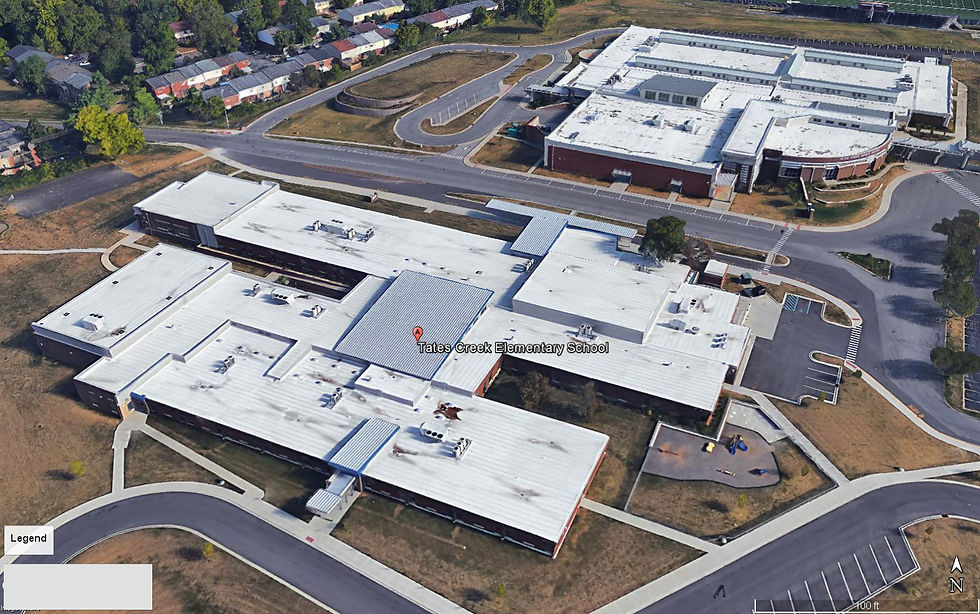Low Slope Roofing

EPDM
Ethylene Propylene Diene Monomer is a black or white membrane that comes in 45 mil,60 mil, and 90 mil thicknesses and can either be Mechanically-Attached or Fully-Adhered. EPDM has the advantage of being is easy to repair and is competitively priced. These are projects in which we have installed EPDM:
(Also known as flat roofing) is a common type of roof for commercial and industrial buildings. "Low Slope" is classified as any pitch below 3' on 12' (3' Vertical for every 12' Horizontal). A typical low slope pitch on a commercial building is much lower
at 3" on 12' and, therefore, requires a tough, continuous membrane.
We install the four most common commercial roofing membranes: EPDM, TPO, PVC and Modified Bitumen (MB is a broad category of different types of rubberized asphalt sheeting).
Burnett Roofing is "Tier One" licensed for all of the membranes we install, which means we have been factory-trained by the manufacturer and are among an elite group of contractors certified to install their products. These manufacturers include: Firestone, Carlisle, Johns Manville, Tremco, Siplast, Soprema, Flex and Sarnafil.
As certified contractors, we can provide warranties guaranteed by the manufacturer for up to 30 years on any of the membranes listed below.

60 mil EPDM

60 mil White EPDM 2" Standing Seam Metal Roof

60 mil White EPDM Corrugated metal Wall Panel Cementious Wall system

EPDM Roof System Custom Perforated sign and Porch

60 mil EPDM 2" Standing Seam Metal Roof

60 mil EPDM 2" Standing Seam Metal Roof

090 EPDM Roof System Paver System
TPO
Thermoplastic Polyolefin is typically a white membrane (gray and tan are also available) that comes in 45 mil., 60 mil., and 80 mil. thicknesses as well as Fleecebacked and can be either Mechanically-Attached or Fully-Adhered. White TPO is highly reflective and can help cool a building in summertime. This material is competitively priced. These are projects in which we have installed TPO:

60 mil Fleeceback TPO ACM Wall Panels

60 mil TPO Membrane System Flush Panel Wall System

60 mil Fleeceback TPO Radiused Standing Seam Metal Roof System Flush Metal Wall Panel System

80 mil TPO

60 mil EPDM Corrugated Metal Wall Panels

60 mil TPO Metal roof Retrofit

60 mil TPO Metal Roof Retrofit
PVC
Poly Vinyl Chlorideis typically a white membrane (limited colors are available) that comes in 45 mil., 50 mil., 60 mil., 80 mil. thicknesses as well as Fleecebacked and can be Mechanically-Attached or Fully-Adhered. PVC has superior resistance to animal fats and is therefore a recommended material for restaurants. The white membrane is reflective and can help lessen the cooling load on a building. Here are some projects where PVC was installed:

60 mil PVC Flush Panel Wall System

60 mil PVC Custom Metal Fabrications

60 mil PVC
Modified Bitumen
The most common modified membranes are SBS Styrene Butadiene Styrene and APP Atactic PolyPropylene. These membranes come in a large variety of formulations, thicknesses and colors but they all share the common characteristic of being very durable. These membranes are installed in 2 layers (sometimes three) using hot or cold asphalt. This material has a higher cost, but a much higher puncture resistance than a single ply membrane. Here are some projects where Modified Membranes was installed:

2 ply SBS Membrane 2" Standing Seam Roof

2 ply SBS

2 Ply SBS

2 ply SBS

2 ply SBS
